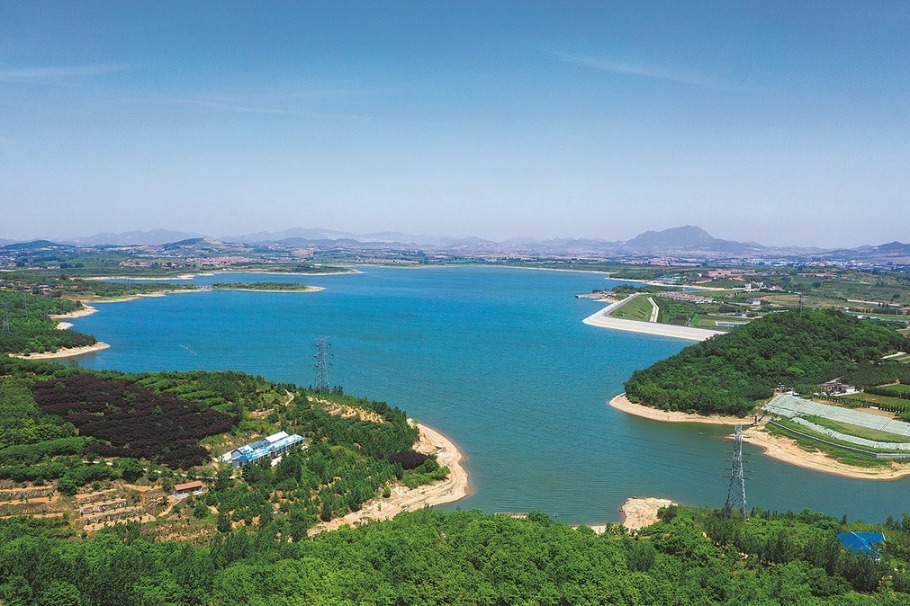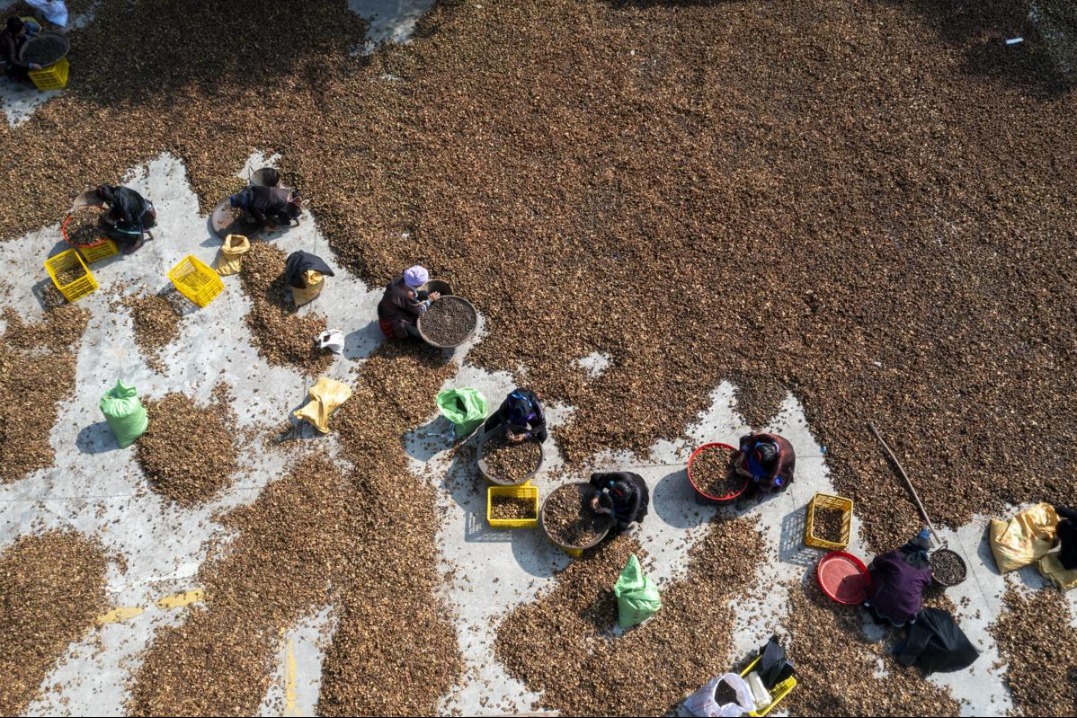China making strides in circular economy

The significant advancement of China's circular economy has emerged as a crucial driver of the nation's sustainability efforts, contributing to 25 percent of the country's overall carbon emission reduction, a senior climate expert said.
Zhu Liyang, a member of China's National Expert Panel on Climate Change, also noted that despite entering the circular economy arena relatively late, the country has risen to become a global giant in the field.
"After over 20 years of development, China has made remarkable progress in promoting its circular economy," said Zhu, who is also president of the China Association of Circular Economy, in an interview with China Daily on the sidelines of the ongoing COP29 United Nations climate change conference.
The UN gathering of almost 200 countries kicked off in Baku, Azerbaijan, on Nov 11 and is slated to conclude on Friday.
Zhu especially noted China's efforts to promote the transformation of industrial parks across the country — which contribute to 30 percent of the country's carbon emissions — to help them better cater to circular development.
He said the coupling of upstream and downstream industrial chains is one of the priorities, with an aim to optimize the recycling and use of waste resources to establish a robust new industrial chain that bolsters the circular economy.
Thanks to such efforts, China used 4 billion metric tons of bulk solid waste in 2023, and the usage rate of newly added solid waste that year was nearly 60 percent, he added.
"This is a very remarkable achievement," he said.
Bulk solid waste refers to large quantities of solid waste materials that are typically generated by industrial processes, construction activities or other sources. This type of trash is usually heavy and not easily compacted.
China recycled 260 million tons of steel waste in 2023, he said, and of that, 220 to 230 million tons were used as scrap for steel making.
The practice has shortened the steel production process, contributing significantly to the reduction of energy consumption and carbon dioxide emissions, Zhu said.
"Once a laggard in circular economy development, it has swiftly caught up with leading nations and now spearheads the field, all within a mere 20-year span," he remarked.
The United States and European countries embarked on circular economy initiatives much earlier, he said. In his recent discussions with representatives from these countries, however, he found many of them expressed eagerness to glean insights from China's experiences.
Zhu highlighted the significant potential of online electronics recycling platforms to boost China's circular economy.
Currently, over 400 million mobile phones are discarded every year in China, with only about 5 percent of them entering professional recycling channels, according to the China Association of Circular Economy.
As digitalization and smart technology advance, internet recycling platforms have embraced a boom, and old devices can now be efficiently and conveniently recycled through such platforms, he said.
The mature technologies of some of the platforms in data erasure have addressed many people's concerns over the safety of information in their devices, he added, citing online platform Zhuanzhuan as an example.
This enables the reintroduction of many of the devices, including cellphones, into the market, he said.
According to Chen Xiaochen, president of Zhuanzhuan's Sustainable Development Committee, the company established in 2015 has started offering a service to collect secondhand products at sellers' homes following online orders, and plans to make the service available in 270 prefecture-level cities and 300 county seats by the end of this year.
The number of cities covered by such business is expected to increase to about 1,000 by the end of 2025, she said at a side event at COP29.
As of last year, the trading of secondhand goods through Zhuanzhuan's platform has contributed to a reduction of over 4.1 million tons in carbon emissions.
The reduction is comparable to the emissions produced by a traditional oil-fueled car circling the Earth's equator 580,000 times or traveling a distance of 23.1 billion kilometers, the company said.
Zhu emphasized that while some idle cellphones may not be suitable for reuse, they can still be disassembled for recycling purposes to recover valuable metals, rubber and plastics.
He called on the government to establish standards aimed at enhancing the regulation of electronic product designs, ensuring they are easily and efficiently disassembled to maximize resources that can be recovered.
"The online recycling businesses are still in their early stages, but they boast huge market potential," he said.





































